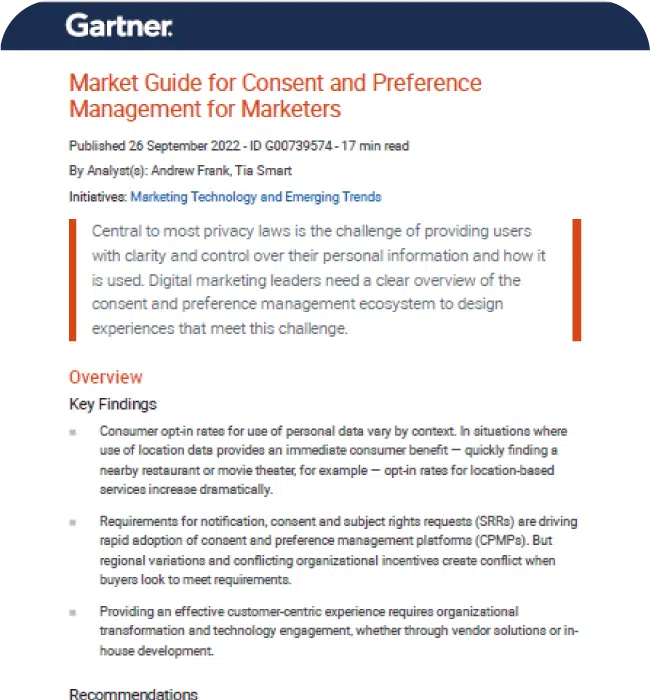The future of AI marketing: Balancing privacy and efficiency
Posted: February 15, 2023
The AI revolution is here, and marketing teams are excited to leverage the power of machine learning and natural language processing to help automate, augment, and streamline their campaigns.
But before you jump on the AI hype train, take a moment to consider the privacy and data protection implications. There are risks involved, whether you’re using algorithms to target ads, analyzing customer data to make predictions, or asking ChatGPT to write your newsletter.
AI primarily runs on personal data, and laws like the EU General Data Protection Regulation (GDPR) and California Consumer Protection Act (CCPA) apply. Let’s explore how data protection and privacy issues arise across five marketing AI use cases.
Targeting and personalization tools
Your marketing team might have been using AI for years. Many well-established marketing tools arguably qualify as AI-based as they use algorithms to process people’s personal data.
Cookies, for example, aren’t AI in themselves – they’re simple text files placed on a user’s device. But AI systems can process personal data collected via cookies – which can include information about people’s browsing history, location, and personal preferences.
Before engaging in any targeted marketing campaign, ensure you comply with the law and maintain your customers’ trust. Provide transparent information about your cookies and offer people a clear choice over how you use their data.
Customer chatbots
Chatbots are finally starting to improve. It can sometimes be hard to tell whether you’re talking to an AI or a real human. A good example is ChatGPT, which we’ll discuss in more detail below.
Many marketing teams are turning to chatbots to provide real-time customer service. If implemented properly, this can be an efficient way to communicate with your customers. If done poorly, you’re risking privacy and security issues.
Make sure your chatbots do not collect any unnecessary information. If you need to verify a customer’s identity or collect their email address, ensure you have a process for securing that data. You should also be ready to provide access to a customer’s chat history on request.
Big data
Some marketing teams use big data analysis for customer segmentation, behavioral analysis, or campaign optimization. Big data can provide useful insights into your customers and your marketing tactics. But proceed with caution. With big data comes big responsibility.
As the name suggests, big data systems require a lot of data. Under data protection law, you must ensure you’re acting transparently and not processing personal data unless you need to do so for a specific purpose.
These rules apply even when another company runs data analysis on your behalf. You should consider whether you need to run a data protection impact assessment (DPIA) before using people’s data for this purpose.
Customer Relationship Management
Customer Relationship Management (CRM) tools can use AI to provide personalized marketing messages, analyze customer behavior, or predict which people are likely to purchase from your company.
But like any system that uses personal data, privacy and security concerns apply to CRM tools. Under the GDPR, you must have a legal basis for processing people’s data. You must take steps to ensure the data is secure. And you must facilitate people’s rights over their data on request.
You should only use CRM software to profile or analyze customers if you have fully assessed the risks. Make sure your customers understand how you will use their personal data, and, where appropriate, get consent.
AI-based writing tools
Now for the elephant in the room for many marketing teams: ChatGPT and other AI-based writing tools.
You might have used ChatGPT or a similar tool to write some basic marketing copy or brainstorm content ideas. But have you considered the data protection and privacy implications?
Large language models (LLMs) like ChatGPT have been trained on huge amounts of data scraped from the internet. There are many questions about whether the AI training process meets GDPR standards.
Just last month, the Italian regulator banned a chatbot running on GPT-3 (the LLM behind ChatGPT). The legal implications for end-users of AI software are unclear, but there are compliance risks.
If you use AI tools to help with the creative process, at least ensure you’re not inputting personal or sensitive data. And keep an eye on how the law develops in this area—the GDPR and the upcoming EU AI Regulation have major implications for using AI.


